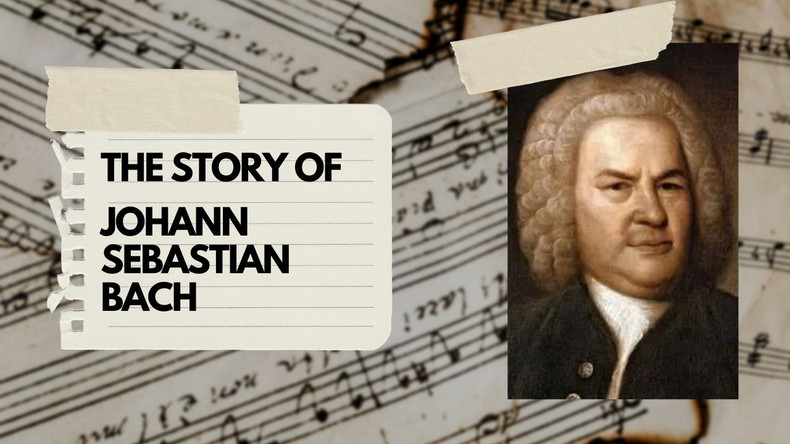J. S. Bach was a prolific songwriter of church music in his era, yet so much of his music was under-appreciated at the time. Today, we can take his music for granted, but then, the town council did all they could to reject his music. How did it come to be that Bach became a household name?
Around 200 years after the birth of Martin Luther, in 1685 Johann Sebastian Bach was born in Eisenach, Thuringia (in Germany). It was in the town of Eisenach that Bach was raised. In fact, the very school he grew up attending was the same school that Luther had gone to. But after losing both of his parents, 10-year-old Bach moved in with his eldest brother, Johann Christoph, in Lüneburg. Johann Christoph taught Bach some of his very first organ lessons.
Both Bach's religious and musical roots ran in his family history. His religious convictions ran back at least to his great-great-grandfather in Hungary. Veit Bach, a Lutheran baker, was facing religious persecution because he followed the teachings of Martin Luther. Because of this persecution he fled to Thuringia, where J. S. Bach would later be born. J. S. Bach actually owned his own copy of Martin Luther's translation of the Bible. He studied this Bible, corrected mistakes made by Luther in the text, took notes, and more!
Bach's family was also very musically inclined, as reflected in his own music. However, his music was not accepted by the general community and definitely not by the town council. He wrote about 1000 different pieces with more than three-fourths of those songs being written for the church.
No matter who Bach was writing for, whether it be the church or a political figure, he would always start his pieces by asking for the Lord's help and placing the initials "JH" (in German) or "JJ" (in Latin) at the beginning of the first page. Both sets of those initials translates to "Jesus, help" in English. He also ended every piece with the initials "SDG", which stood for "Soli Deo Gloria" in Latin, meaning for the glory of God alone. Everything Bach did was solely for the glory of God, no matter for whom or for what purpose he was writing it for.
Some 80 years after his passing, the people finally took up an interest in Bach's works. It seems to have happened around the time Felix Mendelssohn arranged Bach's The Passion of Saint Matthew. This and other arrangements revived Bach's music and gave many a much greater appreciation for it. Now, Bach is very well known and very appreciated! May we all remember his wish, which should be ours as well, that everything we do is done soli Deo gloria, for the glory of God alone!
Information adapted from:
https://www.ligonier.org/podcasts/5-minutes-in-chu...
https://www.christianitytoday.com/history/people/m...
https://www.britannica.com/biography/Johann-Sebast...
Photo taken from:

